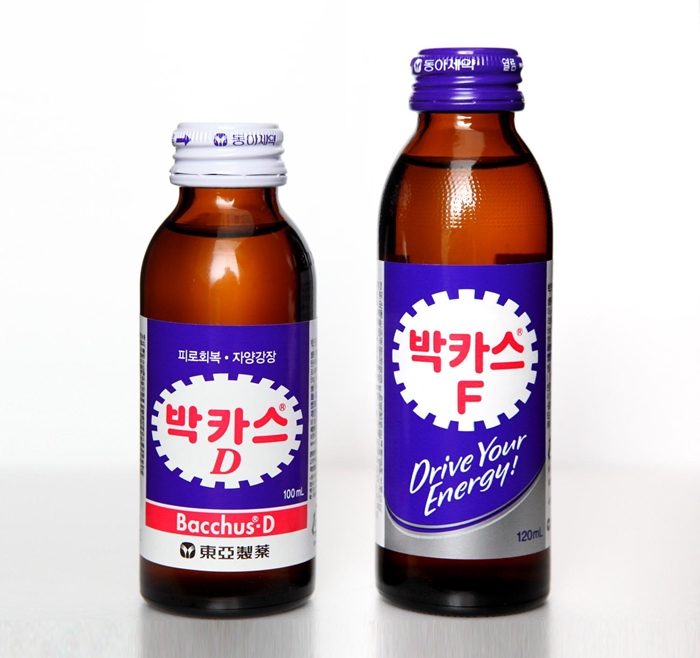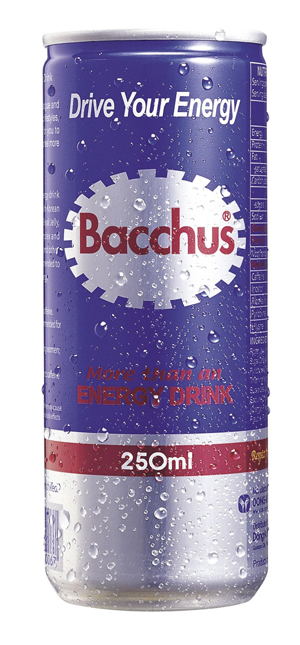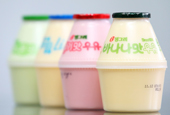A young Korean medical student was studying aboard in Germany in the 1950s.
Passing the Hamburg city hall, a full sized statue of Bacchus, the god of wine and harvest, known as Dionysus in Greek, caught his eye. It was standing in the basement entrance to the building. That very student is Kang Shinho, current chairman of the Dong-A Socio Group, a pharmaceutical and drinks company.
First introduced as a pill in 1961, Bacchus was transformed into a bottled tonic, Bacchus D, for "drink," in 1963. As of 2013, it has sold approximately 17.8 billion bottles. If you were to stand every bottle sold on top of each other, the chain would circle the earth 53 times and there would still be some to spare. A steady seller for more than five decades, just about every Korean knows its name. In a rapidly changing society where numerous products come and go in less than six months, this energy drink has earned the nickname, "Legendary Bacchus."

Bacchus energy drinks are a steady seller in Korea. The original Bacchus D has been on the market since 1963. Bacchus F, made for convenience stores, is on the right.
Taurine is a major ingredient of Bacchus. It's a type of amino acid generated in animals which helps lower cholesterol and aids liver function. One of the well known benefits of taurine is its ability to alleviate fatigue. Bile made in the liver helps rid the liver of toxins and relieves tiredness. Taurine accelerates bile acid production, which in effect aids fatigue alleviation.

Bacchus is canned for export.
As the established, representative pick-me-up of Korea, Bacchus has seen a rapid increase in international sales. The first exports were to the United Arab Emirates and to the U.S. in 1981. Current exports include some 18 countries, like China, the Philippines, Mongolia, Canada, Cambodia, Japan, Australia and more.
One notable statistic is the company's sales in the Cambodian market. Exports to Cambodia were 19 million cans in 2011, worth some KRW 5 billion. In 2012, it sold 61 million cans in the Southeast Asian nation, worth some KRW 17.2 billion, and in 2013 the company saw sales of 100 million cans, earning it some KRW 27.7 billion. This is a record sales figure for a single country.
Its top U.S. markets are concentrated on the East Coast and in the LA area. Bacchus cans are differentiated by recipe to meet younger tastes. Some of the added ingredients are 50 milligrams of Goryeo ginseng and 20 milligrams of royal jelly. Its clean taste and affordable price of USD 0.99 is catching on. In China, sold as 宝佳适, it is increasingly available in local super market chains.
The world's energy drinks market is worth approximately KRW 7 trillion and annual growth projections are more than 10%. The Bacchus line of drinks is tirelessly progressing onward.
By Wi Tack-whan, Paik Hyun
Korea.net Staff Writers
whan23@korea.kr
Please refer to the website of Dong-A Socio Group for more details. http://www.donga.co.kr
